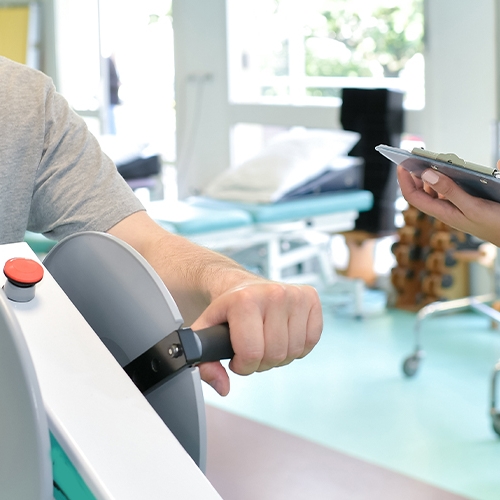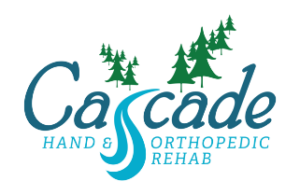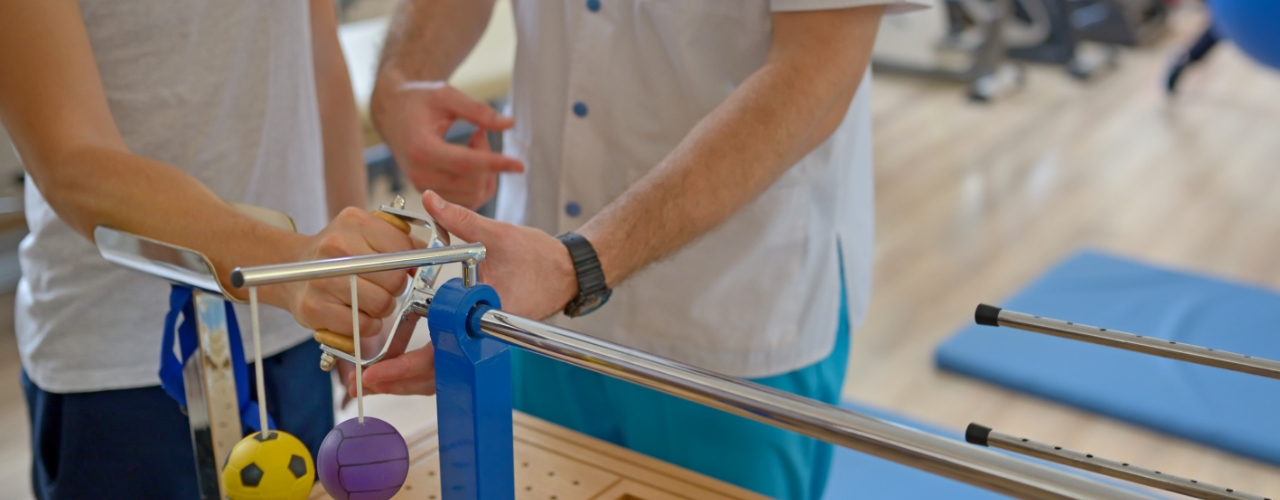Regain Your Life With Occupational Therapy
Occupational therapy is a healthcare profession that focuses on helping individuals improve their ability to perform daily tasks. Our occupational therapists (OTs) at Cascade Hand & Orthopedic Rehab work with people with physical, cognitive, or sensory challenges that hinder their independence and participation in activities. The main goal of occupational therapy is to help you or a loved one achieve greater independence and improve your overall quality of life.
Our occupational therapists in Fort Myers, FL help our clients and other members learn about using adaptive equipment and techniques to improve their daily living skills and participate in their communities. In addition, providing optimal patient care through education is also a significant part of treatment when caregivers or families are involved. We will
We use an evidence-based approach to evaluate and treat our client’s needs. We will develop a customized treatment plan that includes exercises, adaptive equipment, and assistive technology to help you perform daily activities, such as dressing, cooking, and work-related tasks.


Conditions That Occupational Therapy Treats
Occupational therapists (OTs) are healthcare professionals who work with individuals of all ages to help them perform everyday activities, despite physical, developmental, or emotional challenges. They commonly treat conditions such as:
- Hand and Wrist Fractures: Occupational therapists can provide comprehensive rehabilitation for fractures in the hand and wrist, including post-surgical management, splinting, exercises, and functional retraining to restore optimal hand function.
- Tendon Injuries: Occupational therapists play a crucial role in the rehabilitation of tendon injuries, such as flexor and extensor tendon lacerations or repairs. They provide specialized interventions, including tendon gliding exercises, strengthening exercises, and functional training to promote tendon healing and restore hand function.
- Nerve Injuries: Occupational therapists work with individuals who have suffered nerve injuries, such as median nerve injuries (e.g., carpal tunnel syndrome) or ulnar nerve injuries (e.g., cubital tunnel syndrome). They implement interventions to improve nerve function, reduce pain, and restore hand and finger dexterity.
- Rheumatoid Arthritis: Occupational therapists assist individuals with rheumatoid arthritis by providing interventions aimed at reducing pain, managing inflammation, preserving joint function, and optimizing independence in daily activities. They may use splinting, joint protection techniques, adaptive equipment, and energy conservation strategies.
- Osteoarthritis: Occupational therapists develop customized treatment plans to address the pain, stiffness, and functional limitations associated with osteoarthritis of the hand and wrist. They provide joint protection strategies, exercises, thermal modalities, and assistive devices to enhance joint mobility and functional abilities.
- Dupuytren’s Contracture: Occupational therapists work with individuals with Dupuytren’s contracture to manage the condition through interventions such as splinting, scar management, manual techniques, and hand exercises to improve hand function and prevent contracture progression.
- Tendinopathies: Occupational therapists address common tendinopathies like De Quervain’s tenosynovitis and trigger finger through interventions such as activity modification, ergonomic recommendations, therapeutic exercises, and manual techniques to reduce pain, improve tendon gliding, and restore hand function.
- Hand and Wrist Instabilities: Occupational therapists provide interventions for conditions involving hand and wrist instabilities, such as ligament injuries or post-ligament reconstruction surgeries. They may use splinting, strengthening exercises, proprioceptive training, and functional activities to enhance stability and functional performance.
- Amputations and Prosthetic Training: Occupational therapists assist individuals with hand or finger amputations in adapting to their functional changes. They provide training in the use of prosthetic devices, sensory re-education, desensitization techniques, and functional adaptations to promote independence and improve quality of life.
- Complex Regional Pain Syndrome (CRPS): Occupational therapists play a vital role in the comprehensive management of CRPS, providing interventions such as desensitization techniques, graded motor imagery, pain management strategies, activity modification, and functional retraining to reduce pain and restore function.
The primary goal of an occupational therapist is to enable people to participate in everyday life activities. They achieve this by working with people and communities to enhance their ability to engage in the occupations they want to, need to, or are expected to do, or by modifying the occupation or the environment to support their occupational engagement better.
Call today to request an appointment with one of our occupational therapists!
Occupational Therapy Treatments
Our occupational therapists will perform a thorough exam to identify the issues impacting you or a loved one. This assessment will address your medical history, current symptoms, and other health factors that could be contributing to your condition.
OT treatments that we use may include:
- Activity modifications: Our occupational therapists help patients learn new skills or improve existing ones with activity modifications. We will consider each patient’s abilities and determine which areas could be targeted for improvement.
- Strength, flexibility, and coordination exercises: OT may include stretching and exercise to increase your strength, flexibility, and mobility. These techniques typically involve using resistance bands for strength or restoring balance and coordination.
- Adaptive equipment: Adaptive equipment is often necessary for treatment, which includes wheelchairs, walkers, or other tools to help clients perform tasks more independently. Some common types of adaptive equipment used by our OTs include:
- Dressing aids: Button hooks, long-handled shoe horns, dressing sticks, sock aids, and elastic shoelaces to promote independent dressing.
- Eating utensils: Weighted utensils, plate guards, non-slip placemats, and adapted cups to assist with feeding and meal preparation.
- Writing aids: Pen grips, weighted pens, and writing splints to improve handwriting and motor control.
- Bathing and toileting aids: Shower chairs, grab bars, raised toilet seats, and long-handled sponges to enhance safety and independence in the bathroom.
- Reachers and grabbers: Extending tools to help individuals lift items without bending or stretching.
- Custom splints and orthosis: These devices are used to provide extra support and allow for proper alignment. Custom splints and orthosis are intended to restore functions in the affected area. Examples include ankle braces, finger splints, and spinal braces.
- Ergonomics: Ergonomics helps patients modify their workplace while managing their condition and accompanying symptoms. An OT will assess the different products and systems that need to be rearranged to fit the patient using them. The purpose is to reduce the risk of injury by improving the workspace environment.
Occupational therapy can teach you how to participate in everyday tasks and the activities you enjoy. Our rehabilitation programs at Cascade Hand & Orthopedic Rehab in Fort Myers, FL will help you achieve goals to develop, improve, and maintain skills required for daily living and working.
Your Next Steps…
Request An Appointment
Receive A Custom Treatment Plan
Work Hard and Progress In Your Recovery
Recover & Enjoy Life Pain-Free!

